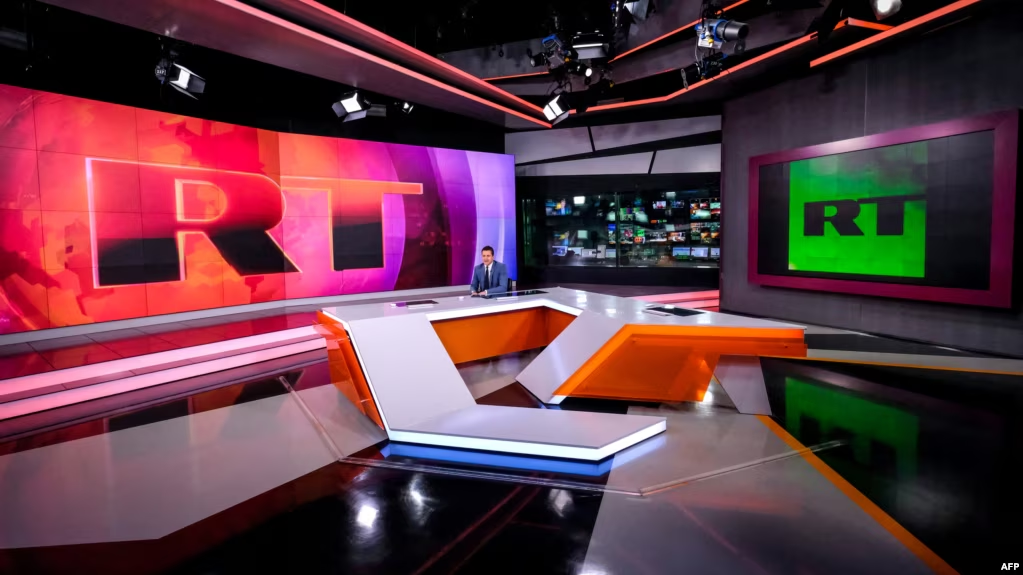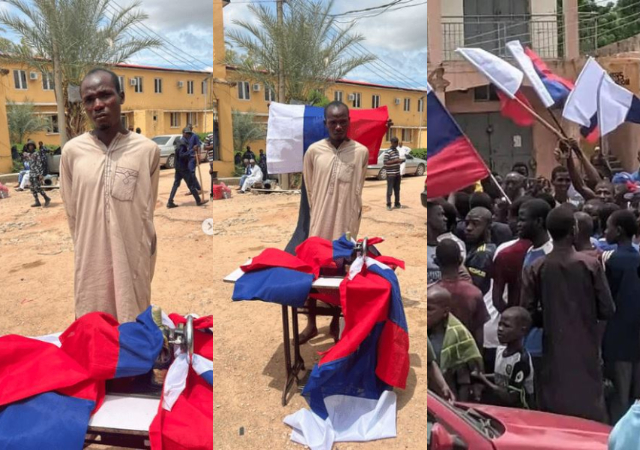Russian state-funded network RT has launched a provocative advertising campaign across several African cities, featuring billboards and videos that showcase 20th-century independence leaders and anti-colonial quotes. This marketing blitz, aimed at promoting the Kremlin-backed outlet, comes as RT faces widespread bans and restrictions in Western countries due to its role in spreading disinformation, particularly regarding the war in Ukraine.
The campaign, with its slogan “Your Values. Shared,” prominently displays images of influential African leaders such as Julius Nyerere, Tanzania’s first president; Ugandan independence leader Milton Obote; former Ghanaian leader Kwame Nkrumah; and Zimbabwe’s Robert Mugabe. Large-screen digital video promotions for RT are also being displayed at major transport hubs like Addis Ababa Bole International Airport.

RT’s deputy editor-in-chief, Anna Belkina, justified the campaign in a recent op-ed, stating that it “emphasizes RT’s commitment to dismantling neo-colonialist narratives in news media.” Belkina criticized the dominance of Western mainstream media, arguing that RT provides “a voice of dissent in the media landscape.”
However, media watchdogs and disinformation analysts paint a different picture. They point out that Russia, along with China, has been actively seeking to gain a foothold in Africa through various means, including offering free content and funding to local media outlets. The Africa Center for Strategic Studies reported in March 2024 that Russia is the leading source of disinformation on the continent, with a nearly fourfold increase in disinformation campaigns targeting African countries.
Steven Gruzd, a Russia expert at the South African Institute of International Affairs in Pretoria, suggests that this campaign is partly a reaction to setbacks RT faced following Russia’s invasion of Ukraine in February 2022. The network lost significant viewership when European sanctions led to its removal from platforms like DStv (Digital Satellite TV) in South Africa and other African markets.
RT’s pivot to Africa comes after losing much of its impact in Europe, Canada, Australia, and the United States. The network, formed in 2005 and funded by the Russian government, has faced numerous accusations of being a propaganda outlet. It has been found by media regulators, such as Britain’s Ofcom, to lack impartiality and broadcast misleading material. In 2017, RT was forced to register as a foreign agent in the United States.

Despite these setbacks, RT has made inroads in some African countries. It established a bureau in Algeria last year and partnered with Afrique Media in Cameroon. According to Reporters Without Borders, RT is available in various African nations, including the Maghreb region, Côte d’Ivoire, Senegal, Burkina Faso, and Cameroon. The network can also be viewed in Kenya, Tanzania, and other countries through China’s StarTimes service.
Experts note that RT is leveraging the narrative that Russia was never a colonial power to gain traction in Africa. Many African ruling parties have historical links to Moscow due to the Soviet Union’s support for liberation struggles against colonial or white-minority rule. This strategy taps into the collective antipathy towards colonialism deeply ingrained in African populations.
However, the effectiveness of this campaign remains uncertain. Anton Harber, a former journalism professor at the University of the Witwatersrand in Johannesburg, argues that the use of dated African leaders, some of whom are now viewed skeptically, might not resonate with young Africans. He points out the irony of RT promoting itself as a voice of anti-colonialism while Russia increases its influence on the continent in ways that could be described as neo-colonial.
As RT continues its push into African media markets, concerns grow about the spread of disinformation and the potential impact on local politics and public opinion. The situation underscores the complex interplay between media, politics, and historical narratives in shaping contemporary African-Russian relations.
The coming months will likely reveal the effectiveness of RT’s strategy and its impact on African media landscapes. As global powers vie for influence on the continent, the role of media outlets like RT in shaping public discourse and international relations remains a critical area of study and concern for policymakers and media analysts alike.



